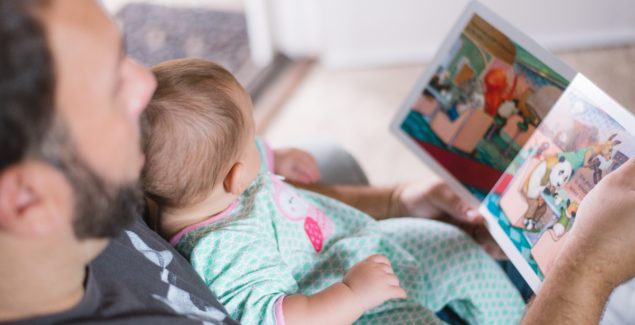Sleep: Let’s Talk About Older Kids and Teens

Posted in: Hot Topics
Topics: Child + Adolescent Development, Healthy Living
Este artículo está disponible en español.
Some kids sleep fine, and some kids don’t. That’s a good place to start when you think about sleep problems and kids. According to research, many kids who continuously sleep well, often do so from very early in their lives. These are the kids with parents who often look well rested, despite having just brought a child into the world. The other kids—the ones who don’t sleep so well—well, their parents can consume an awful lot of coffee.
When we talk about sleep and older kids or teens, the first thing to think about is whether the trouble sleeping is a new problem. If your child has always slept well and then, at age nine or 10, suddenly starts having a hard time falling asleep, you need to think about some of the normal, developmental challenges that might be interrupting bedtime. These kinds of problems are the subject of this article.
Try to Figure Out What’s Changed
Is your pre-teen with trouble sleeping about to change schools? About to move to a new home? Is everything alright at home? You should even consider whether there are new foods in the diet — caffeine, even in the afternoon, is a fairly common cause. The gist is to look for some kind of change in the home environment that might explain the change in your child’s sleep.
You’ll also want to think about how the sleep itself is disrupted. Does your teen have difficulty falling asleep? Does he or she wake up more often. Is it a combination of both?
Finally, if you feel confident that there have not been any major environmental stressors to explain the changed sleep habits, you’ll want to consider the possibility of a new psychiatric syndrome. Depression, anxiety, trauma, and bipolar disorder all share sleep disruptions as important signs and symptoms. There are other, less common psychiatric syndromes, as well.
The questions are about the same with teenagers, but there’s a new twist: we know that the teen brain is primed to stay up late. So, teenagers are hard-wired to futz around deep into the night, and then sleep healthily late into the morning.
And teens, in fact, need even more sleep than slightly younger kids; they use up a lot of energy as their brains and bodies rapidly mature. It’s just that healthy teens stay up later and later, but still have to wake up early the next morning to attend school, or work, or sports practice, or other obligations. The result is increasingly tired teens. The first two periods of class in high school are often very different for teens than the courses they have at end of the day. Every seasoned teacher knows this.
This means that the teen who stays up late isn’t necessarily having the same set of problems that a pre-teen could be suffering from. It is still worth looking for these same stressors—new schools, changes in social relationships, problems in the home. But many teens are as confused as their parents are about why they can’t fall asleep earlier. Once you’re comfortable that your teenager isn’t depressed or anxious (remember that these conditions are much more common for pre-teens), you’ll want to start thinking about sleep hygiene.
What is Sleep Hygiene?
How do we define sleep hygiene? Twenty to 30 years ago, good sleep hygiene often means things like reading before bed rather than watching TV. Or turning the clock around, if the watching the time pass makes your teen feel anxious when they’re trying to fall asleep. Today, other things that can interfere with teens falling asleep include late-night exercise, or phone conversations deep into the night. A teen is biologically wired to connect with other teens. That means that kids are often talking on the phone or doing sit-ups and push-ups sometimes well past midnight. Neither of these stimulating activities is very helpful for restful sleep.
However, we all know that the world has gotten a lot more complicated. We have texting, and TikTok, and wireless computers, and FaceTime, and YouTube, and Hulu, and all sorts of late-night distractions. To the socially and intellectually-active brain of a teen, these consuming activities out-compete the pleasant nighttime reading that used to do the trick.
When you’re 16 years old, do you want to read a book, or chat with your friends? Do you want to watch your favorite show when it airs on TV, or watch ALL the episodes of your favorite shows at once through streaming videos?
Modern parents need to be even more vigilant around the sleep habits of their teenage kids than was the case just 15 years ago. The odds are stacked against you—kids have a way of feeding those hungry brains—but remember that poor sleep has a cumulative effect, and can lead to academic and social difficulties. A sleep-deprived teen’s temper flares more readily. They can’t study as well the next day, and tend to do poorly on more tests than she used to. These are issues that can snowball fast.
For parents of kids of all ages, here are some general guidelines: the best cure, as simple as it sounds, is a consistent bedtime schedule.
For pre-adolescents, try sticking to a routine that allows these goals to be met:
- 9 to 11 hours for a school-aged child. Remember that, like teens, school-aged children and pre-teens spend time with TV, computers, and the Internet, all of which can interfere with time for sleep. This age group also may drink caffeinated beverages that can affect the make it harder to fall asleep at night. Watching TV, or other screen time, just before bed can also make it harder to fall asleep, and may create anxiety about or resistance to bedtime.
- If the current bedtime for your child is too late, move it 15 minutes earlier each night, until you reach the desired bedtime. Tuck kids who get up back into their own beds, promptly and repeatedly, until they get the message that you expect them to get to sleep on their own.
For all kids, and perhaps especially teenagers, these habits can help a lot:
- Unplug the bedroom. Turn off TVs, computers and cell phones. In fact, keep these things out of the bedroom. This isn’t entirely possible with teens, but do the best you can.
- Set a wind-down routine. This is highly individualized, but the general idea is to decrease, rather than increase, activities that are too stimulating in order to allow for the peaceful onset of sleep.
- Go decaf. Drinking any caffeine during the day, and especially in the afternoon, can affect sound sleep. Caffeine is found not just in coffee and cola, but also in tea and chocolate.
- Reduce daytime stimulation. Overbooked kids who rush from band practice, to dance class, to dinner, to homework, may be too excited or agitated at bedtime to unwind. Experts recommend about one major activity per season.
- Get help. If, despite these measures, your child still resists bedtime, has nighttime awakenings, or snores, talk with your doctor. There are a number of health problems that are potentially to blame. Psychiatric syndromes, sleep apnea, allergies or GI distress can all lead to poor sleep. These conditions will require a clinician’s attention.
Finally, remember that poor sleep, or the lack of sleep, is a national problem. The United States is notorious among Western nations for its poor sleep habits. Adults are often as guilty as children when it comes to healthy bedtime routines. Your kids are watching you more than you think, and if you show them how you properly prepare for bed, they’re that much more likely to follow suit.
Was this post helpful?
Newsletter
Subscribe Today
Your monthly dose of the latest mental health tips and advice from the expert team at The Clay Center.
SubscribeMultimedia
Quick Jumps
Tag Cloud
-
addiction
ADHD
adolescents
anorexia
anxiety
autism
behavior
CBT
child development
children
college
communication
covid-19
depression
digital media
dyslexia
eating disorder
evaluation
family
fear
healthy development
learning
learning disabilities
learning disability
mental health
mental illness
parenting
parents
Podcast
PTSD
relationships
resilience
school
shrinking it down
social media
stigma
stress
suicide
technology
teenagers
teens
therapy
trauma
treatment
violence

 Share
Share Tweet
Tweet





